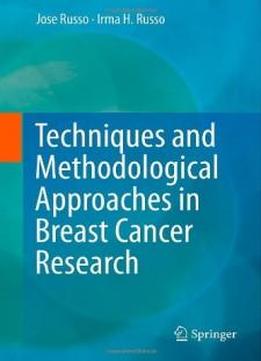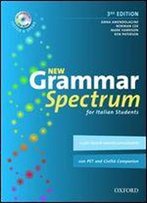
Techniques And Methodological Approaches In Breast Cancer Research
by Irma H. Russo /
2014 / English / PDF
19.3 MB Download
This volume explores the myriad of techniques and methodological
approaches that are being used in breast cancer research. The
authors critically evaluate of the advantages and disadvantages of
current methodologies, starting with the tools available for
understanding the architecture of the human breast,
including its tissue and cellular composition. The volume
discusses the importance of functional studies in breast
cancer research, especially with the help of laser capture
microdissection, which allows the separation of small amounts of
tissue, as well as specific cells, for biochemical analysis. In
addition, the authors address methodologies including stem cell
separation, which has helped in significantly understanding their
role in normal breast development, but also further
the understanding of breast cancer and its therapeutic
management. The use of in vitro techniques and established cell
lines for mechanistic studies in chemotherapeutic approaches
have been invaluable will be discussed. Imaging
techniques for evaluating in vitro and in vivo behavior of
normal and cancerous breast tissue will be explored, as
it provides a better understanding of the
physiopathology of cancer. The volume will also discuss the
molecular analysis of gene function in breast cancer through
the transcriptomic and epigenomic profile. More importantly,
the advancement of more refined techniques
in sequencing will be covered. This monograph will be a
comprehensive, authoritative and timely, as it addresses the
emerging approaches used in breast cancer research.
This volume explores the myriad of techniques and methodological
approaches that are being used in breast cancer research. The
authors critically evaluate of the advantages and disadvantages of
current methodologies, starting with the tools available for
understanding the architecture of the human breast,
including its tissue and cellular composition. The volume
discusses the importance of functional studies in breast
cancer research, especially with the help of laser capture
microdissection, which allows the separation of small amounts of
tissue, as well as specific cells, for biochemical analysis. In
addition, the authors address methodologies including stem cell
separation, which has helped in significantly understanding their
role in normal breast development, but also further
the understanding of breast cancer and its therapeutic
management. The use of in vitro techniques and established cell
lines for mechanistic studies in chemotherapeutic approaches
have been invaluable will be discussed. Imaging
techniques for evaluating in vitro and in vivo behavior of
normal and cancerous breast tissue will be explored, as
it provides a better understanding of the
physiopathology of cancer. The volume will also discuss the
molecular analysis of gene function in breast cancer through
the transcriptomic and epigenomic profile. More importantly,
the advancement of more refined techniques
in sequencing will be covered. This monograph will be a
comprehensive, authoritative and timely, as it addresses the
emerging approaches used in breast cancer research.







![German Grammar In Context (Languages In Context) (English And German Edition) [English, German]](/media/uploads/2020/5/german-grammar-in-context-languages-in-context-english-and-german-edition-english-german.jpg.147x205_q85.jpg)



